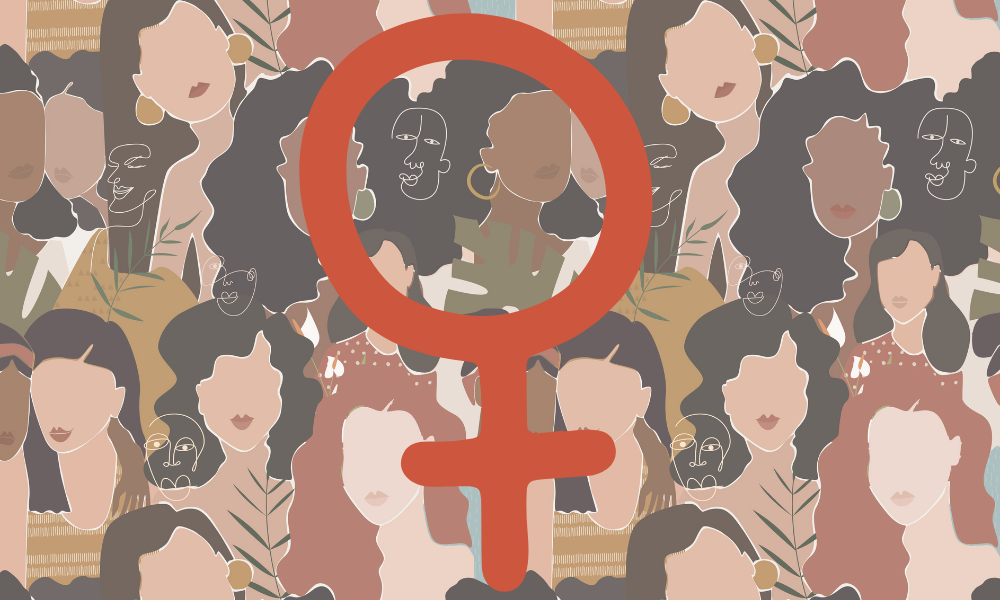The women’s rights movement has focused on and advocated for a variety of issues throughout history. Here’s an overview of the waves of the movement’s history.
First Wave: 1848-1920
The first wave of the feminist movement focused on championing basic rights of women, including a push for equality and women’s suffrage.
Feminist leaders gathered in New York in 1848 at the Seneca Falls Convention to advocate for a variety of issues surrounding equality including women’s suffrage and hosted abolitionists like Frederick Douglas. Women of color like Sojourner Truth, Maria Stewart and Frances E.W. Harper were also advocating for the suffrage of Black women at the same time.
Issues of racism arose among white suffragettes as many felt deserving of the right to vote before Black men did. Black men ultimately received the right to vote on Feb. 3, 1870 through the 15th Amendment. However, discriminatory practices such as grandfather clauses and “one drop rules” part of Jim Crow laws prevented many Black men from voting until the 1965 Voting Rights Act.
Early feminist advocacy work went beyond the right to vote and included a focus on equal opportunities in education and employment, and the right to own property.
The 19th Amendment was ultimately ratified on Aug. 18, 1920.
Second Wave: 1963-1980s
The second wave of feminism began to push the envelope and forced women to consider their role in society, demanding more.
Published in 1949 by Simone de Beauvoir, “The Second Sex” questioned the role women play in society in comparison to men. Betty Friedan’s “The Feminist Mystique,” published in 1963, focused on challenging the traditional roles of married women in the middle-class family structure.
Both women of color and white women were advocating for reproductive freedom, access to contraception and control over their finances, including being able to get credit cards in their own name and apply for mortgages.
Monumental legislation was passed during this time, which assisted in pushing forward feminists’ efforts of equality.
The Equal Pay Act of 1963 made it illegal for companies to provide unequal wages on the basis of sex.
Introduced to Congress in 1923, the Equal Rights Amendment was set to prevent discrimination on the account of sex under the law. It was passed by the Senate in March 1972 but did not receive the 38 states’ ratification requirement to pass. To this day it has still not been fully ratified.
According to the amendment, “equality of rights under the law shall not be denied or abridged by the United States or by any state on account of sex.”
In 1973 Roe v. Wade federally protected abortion in all 50 states after the Supreme Court ruled in favor of women’s choice. This case remains a landmark decision for the pro-choice movement and despite efforts to overrule it, has stood the test of time.
Third Wave: 1991-Present
The early third wave movement of feminism focused on fighting against “workplace sexual harassment” and increasing the number of women in leadership roles.
Anita Hill, American lawyer and academic, testified before the Senate in 1991 that she had been sexually harassed by Supreme Court nominee Clarence Thomas. Despite these allegations, Thomas was later confirmed and remains a justice.
This inspired a movement of advocacy against sexual harassment in the workplace and sparked conversations surrounding the underrepresentation of women in leadership roles.
A year later, 1992 was deemed the “Year of the Woman” when 24 women won seats in the House of Representatives and three in the Senate.
A new wave of feminism began focusing on the concept a intersectionality, which focuses on how multiple factors of oppression are intertwined with one another. This concept was coined by Kimberlé Crenshaw, a lawyer and civil rights advocate, intersectionality in the early ’80s and began to gain traction in the ’90s.
During this time the AIDS crisis was at an all time high and LGBTQ rights advocacy groups, such as the AIDS Coalition to Unleash Power, continued advocacy work pushing for affordable medical support from the government in the fight against HIV/AIDs. Advocacy work included staged die-ins and occupation of politicians’ and pharmaceutical companies’ offices to emphasize the cause.
“Feminists are doing important work in regards to promoting awareness about racism, intersectionality, sexuality,” said Shira Tarrant, a women, gender and sexualities studies professor at CSULB who has written extensively on gender justice. “At the same time, there are a lot of purity politics involved in the feminist movement.”
According to Tarrant, purity politics is like an “internal cancel culture” within the movement that tends to overlook broader issues. She said it involves people doing “me search” instead of research.
With the rise of social media, people can more easily connect and become involved with different movements, such as feminist movements like the #MeToo and #TimesUp campaigns. However, some argue that social media has given rise to a culture of “performative action” advocacy rather than organic allyship and support.
“On the one hand, we have social media, that’s amazing. We can send out blasts through Twitter. We can get on Instagram and find our people,” Tarrant said. “That’s really, really valuable, but at the same time it invites this performativity. ‘Yeah I posted this link or I raised my fist so I’m, like, down’—but not actually going to do anything else.”
Tarrant said some of the main issues being advocated for now, in what some feminists have labeled the fourth wave of feminism, include reproductive justice, intersectional politics, sex worker rights, equality in the workforce and access to education.
Tarrant said though she understands the purpose of the wave construct, she feels it does not accurately represent the feminism movement as it leaves out advocacy work between the time periods.
The rise of the #MeToo movement has raised questions regarding whether or not a fourth wave of feminism has begun.
“If we don’t understand our history, we’re erasing those radical, awesome people who were doing this stuff before us,” Tarrant said.




